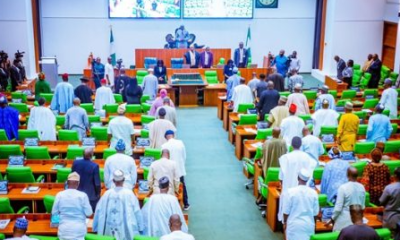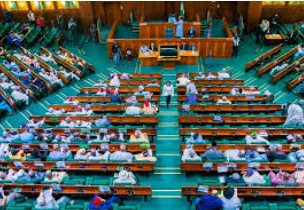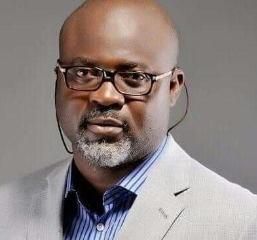By Ediale Kingsley
The House of Representatives has removed Finance Minister as chairman of the National Council on Public Procurement.
This was part of alterations passed by the House on a bill for an Act to amend the Public Procurement Act, 2007 as passed by the House.
One of the major amendments in the Bill is the removal of Minister of Finance as Chairman of the National Council on Public Procurement replacing the Minister with a person to be appointed by the President with the introduction of a new section 1(2)(a).
Section 35 (1) of the bill increased mobilisation fee to contractors or suppliers from 15 to not more than 50 percent or more as may be prescribed by the Bureau, while section 35(3) prescribes 2 years jail term as punishment for “any person or authority who accesses mobilisation fee and absconds or does not carry out the services or works commensurate to the fee paid shall be guilty of an offence and punishable with 2 years imprisonment or a fine equivalent to the fee paid or both.”
Section 25(3) of the law shortens the time provided in the bill for emergency procurement activity to ensure timely execution but “the procurement entity acting with respect to paragraph (i) of this section shall notify the Bureau within 7 days of such action.”
Similarly, the new law provides for the establishment of Parastatal Tenders Board in each Federal ministry, extra-ministerial department and all agencies of government, and includes the National Defense and National Security Agencies which hitherto were excluded from the procurement processes.
In an effort to increase public access to procurement activities, the House bill introduced a new section 5 (f) which mandates the Bureau to “publish the details of all contracts in the procurement journal, any other national newspapers and in their official website; while subsection (h) states that the Bureau shall maintain a national database of the particulars, classification, and categorisation of federal contractors, suppliers, consultants and service providers.”
A new subsection (e) was added to section 4 of the extant Act in order to promote the patronage of local contractors by all agencies of government which mandates the Bureau to “promote local content and industry in the execution of any project in Nigeria.”
In the same vein, section 1(2) expands membership of the National Council on Procurement by including the Minister of Budget and National Planning and eight part-time members to represent the Chattered Institute of Purchasing and Supply Management of Nigeria and Nigerian Institute of Quantity Surveyors, among others. Another landmark amendment is the inclusion of the National Assembly in the appointment of the Director General of the Bureau and further states that the Director General can only by relieved of his/her appointment by the President acting on an address supported by 2/3rd majority vote by the Senate.
Commenting, Speaker Yakubu Dogara noted that the essence of the bill is to sanitise Nigeria’s business environment and improve the ease of doing business in the country by ensuring that Nigeria has value for money by ensuring smoother implementation of national budgets as passed by the National Assembly.
According to the new bill as passed by the House, the chairman of the National Council for Public Procurement will now be appointed by the President, replacing the Minister of Finance, whose ministry is adjudged to be a procurement entity and cannot sit on procurement matters that may potentially concern the Ministry of Finance. Explaining the rationale behind the amendment, Dogara said that the extant provision runs contrary to “the principle of natural justice, where you sit as a judge on your own matter.”
“The National Council of Public Procurement will now include a member of the Institute of Quantity Surveyors because of the professional role it plays in procurement activities. Hitherto, they were not in the council. Furthermore, the appointment of the Director General of the Bureau will now be subject to confirmation by the Senate and removal too.” This, the Speaker, said is aimed at protecting and ensuring the independence of position of the director general of the Bureau.
Dogara revealed that the House bill also shortens the procurement time by the Bureau of Public Procurement on procuring entities saying, “Right now, you will find that if you commence procurement activities, it lasts for not less than 4 months and then we feel that that is very restrictive and will not serve the needed planning and implementation of projects that deal on national priorities. The Bill also increases mobilisation fees payable to contractors from 15 percent to not more than 50 percent but makes it a criminal offence to abscond or not to carry out works commensurate to fees paid to the entity which must be backed by an irrevocable bank guarantee.”
On why the House increased mobilisation fee from 15 to not more than 50 percent, the Speaker said: “…it is to give the procurement or procuring entities some kind of latitude to determine what is right in the circumstance. It is not saying you must pay 50% but at least you have discretion to apply between 15 to not more than 50 percent as mobilisation fees, especially where the contract has some kind of offshore elements and in this era of exchange rate volatility, you may have to pay quickly for those components that are sourced offshore to ensure that they are quickly procured before the value of the money goes up.”
Dogara called on the President to assent to the bill as soon as it is transmitted to him.














 Health5 days ago
Health5 days ago
 Entertainment7 days ago
Entertainment7 days ago
 Crime5 days ago
Crime5 days ago
 Education7 days ago
Education7 days ago
 Health7 days ago
Health7 days ago
 Comments and Issues6 days ago
Comments and Issues6 days ago
 Football6 days ago
Football6 days ago
 Latest6 days ago
Latest6 days ago
